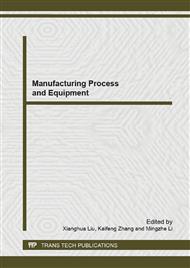p.3655
p.3659
p.3663
p.3667
p.3671
p.3675
p.3680
p.3684
p.3688
The Value of use Modern Means of Information Technology in Rural Adult Education and Training
Abstract:
Chinese government increases emphasis on adult rural education and training in areas, but the way of education and training is traditional. The use of modern means of information technology in rural adult education and training can be an effective solution to solve drawback of the mobility of migrant rural adult work and long working hours. It can promote the exchange between teachers and students, adult rural learners each other. Its rich contents meet the needs of the rural adult learning. And multimedia learning resources will help rural adult learners to enhance the learning passion and motivation. Therefore, in the rural adult education and training the government should vigorously use modern information technology.
Info:
Periodical:
Pages:
3671-3674
Citation:
Online since:
May 2013
Authors:
Price:
Сopyright:
© 2013 Trans Tech Publications Ltd. All Rights Reserved
Share:
Citation:


